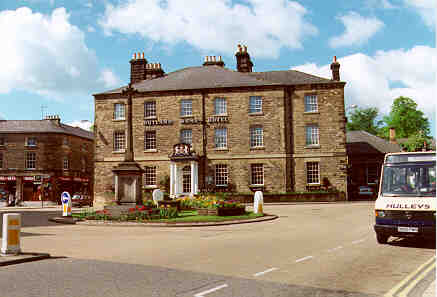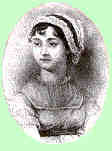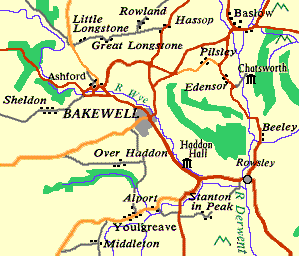Elizabeth had settled it that Mr. Darcy would bring his sister to
visit her the very day after her reaching Pemberley; and was
consequently resolved not to be out of sight of the inn the whole of
that morning. But her conclusion was false; for on the very morning
after their own arrival at Lambton, these visitors came. They had
been walking about the place with some of their new friends, and
were just returned to the inn to dress themselves for dining with
the same family, when the sound of a carriage drew them to a window,
and they saw a gentleman and lady in a curricle, driving up the
street. Elizabeth, immediately recognising the livery, guessed what
it meant, and imparted no small degree of surprise to her relations
by acquainting them with the honour which she expected. Her uncle
and aunt were all amazement; and the embarrassment of her manner as
she spoke, joined to the circumstance itself, and many of the
circumstances of the preceding day, opened to them a new idea on the
business. Nothing had ever suggested it before, but they now felt
that there was no other way of accounting for such attentions from
such a quarter than by supposing a partiality for their niece. While
these newly-born notions were passing in their heads, the perturbation
of Elizabeth's feelings was every moment increasing. She was quite
amazed at her own discomposure; but amongst other causes of disquiet,
she dreaded lest the partiality of the brother should have said too
much in her favour; and more than commonly anxious to please, she
naturally suspected that every power of pleasing would fail her.
She retreated from the window, fearful of being seen; and as she
walked up and down the room, endeavouring to compose herself, saw such
looks of enquiring surprise in her uncle and aunt as made every thing
worse.
Miss Darcy and her brother appeared, and this formidable
introduction took place. With astonishment did Elizabeth see that her
new acquaintance was at least as much embarrassed as herself. Since her
being at Lambton, she had heard that Miss Darcy was exceedingly proud;
but the observation of a very few minutes convinced her that she was
only exceedingly shy. She found it difficult to obtain even a word from
her beyond a monosyllable.
Miss Darcy was tall, and on a larger scale than Elizabeth; and,
though little more than sixteen, her figure was formed, and her
appearance womanly and graceful. She was less handsome than her
brother, but there was sense and good humour in her face, and her
manners were perfectly unassuming and gentle. Elizabeth, who had
expected to find in her as acute and unembarrassed an observer as
ever Mr. Darcy had been, was much relieved by discerning such
different feelings.
They had not been long together before Darcy told her that Bingley
was also coming to wait on her; and she had barely time to express her
satisfaction, and prepare for such a visitor, when Bingley's quick step
was heard on the stairs, and in a moment he entered the room. All
Elizabeth's anger against him had been long done away; but, had she
still felt any, it could hardly have stood its ground against the
unaffected cordiality with which he expressed himself on seeing her
again. He enquired in a friendly, though general way, after her family,
and looked and spoke with the same good-humoured ease that he had ever
done.




